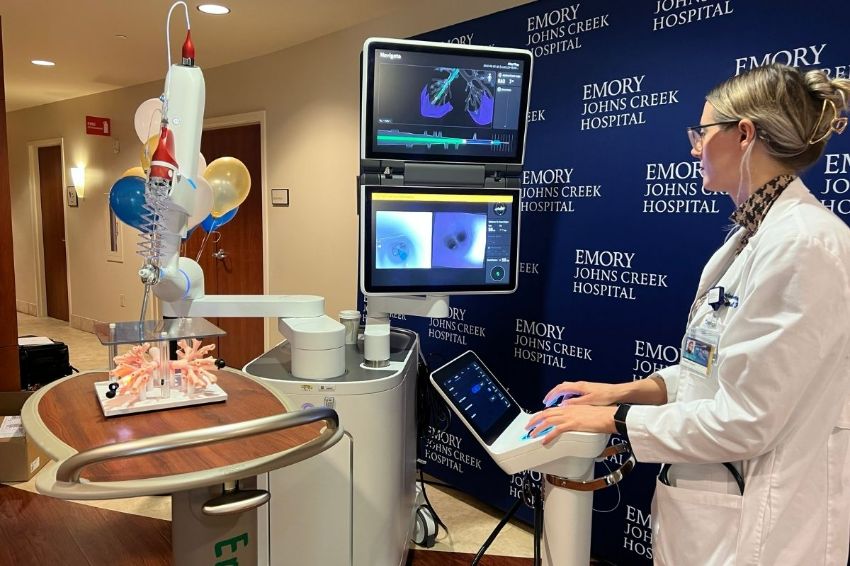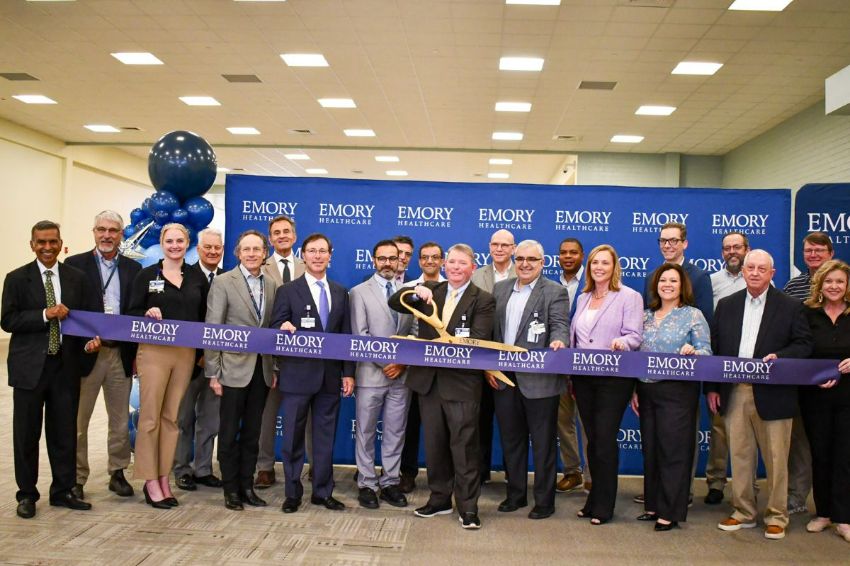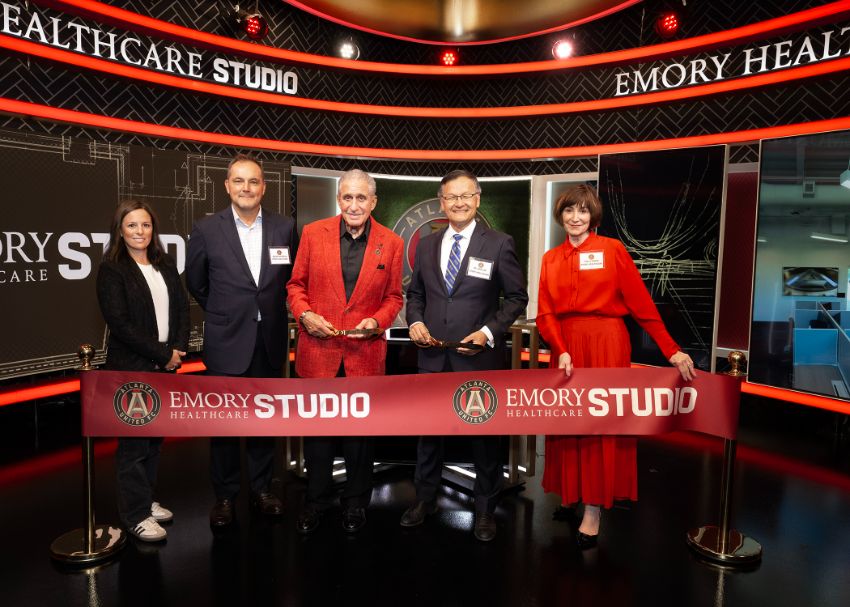ATLANTA - Emory University Hospital Midtown is the first and only academic medical center in Georgia to offer endoscopic spine procedures using new technology to decrease recovery time and pain for patients undergoing spine surgery. As part of its mission to improve lives and elevate health care, Emory Healthcare is pioneering the use of these advanced procedures that are minimally invasive where doctors use a small camera and tools through tiny incisions to perform surgery.
With the new technology, Emory neurosurgeons and spine surgeons can perform a variety of ultra-minimally invasive (UMI) endoscopic spine surgeries, including treating herniated discs.
“The smaller the surgery, the faster patients can recover and get back to a normal life,” says Matthew Gary, MD, associate professor of neurosurgery, Emory University School of Medicine.




